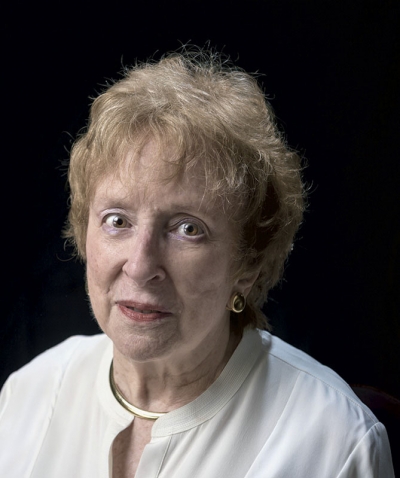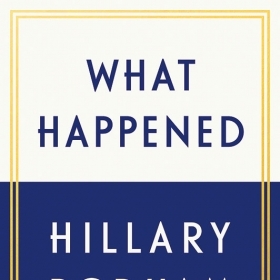When Elizabeth Brenner Drew ’57 moved to Washington, D.C., 60 years ago, she didn’t have an inkling that she would become one of the most respected journalists in American politics.
After graduating from Wellesley, armed with a political science degree, Elizabeth began working at a Boston-based architectural firm as a receptionist, attending secretarial school at night. When the firm ran out of money to fund her position, Elizabeth walked into Atlantic Monthly’s Back Bay offices looking for work. When they didn’t have any openings, the woman she spoke to directed her to another publication in the building, a family-owned authors’ publication called The Writer, where she joined the staff as an editorial assistant. She still had no clue that she wanted to be a writer—“it was [just] the most interesting job I could find,” she says.
All the while, Elizabeth was itching to return to Washington, where she had spent a summer as part of the Wellesley in Washington Internship Program. “With all due respect to my political science professors, who were great, but [DC] is very different in a textbook than in real life … it’s the people, the interactions,” she says.
By chance, she ran into Ted Sorensen, John F. Kennedy’s advisor and speechwriter, who happened to remember her from her time as an intern. Elizabeth considered joining JFK’s campaign, but it hadn’t launched yet. Someone told her to check out the trade publication Congressional Quarterly, where she could get great training for a career on the Hill, and then join the campaign once it started. What began as a six-month contract turned into a five-year stint as a writer—and she never returned to politics, at least on the campaign side of things.
Elizabeth made her first of many marks in political criticism when she served on the staff at the New Yorker during the Nixon administration, following five years as the Atlantic’s Washington correspondent. During a conversation with her editor, William Shawn, over Labor Day weekend in 1973, Elizabeth told Shawn that she had a feeling Nixon and his volatile and already-in-legal-trouble vice president, Spiro Agnew, would be out by the end of the year. She was already thinking of doing something different with her writing—inserting herself into her pieces about the Nixon administration. Elizabeth recalls that Shawn told her, “‘Take a chance on anything, Mrs. Drew’. … He liberated me in a way that nothing since really ever has,” she says.
Her reporting earned her Wellesley’s Alumnae Achievement Award in 1973 and a book deal, where she adapted her columns into Washington Journal (1974), the first of 14 books, not including the reissue of Journal in 2014. Since then, Elizabeth has hosted an interview show on PBS, served as a regular contributor to the New York Review of Books, and has frequently appeared as a guest commentator on Meet the Press on NBC, to name a few. She’s uncovered ties between Congress and Big Tobacco, was one of the first journalists in the 1990s to report on campaign finance, and even had a blink-and-you’ll-miss-it appearance in the 1976 movie All the President’s Men.
Elizabeth continues to contribute to the New York Review of Books, regularly delivers her signature biting commentary via her Twitter account, and writes for Project Syndicate, an international media nonprofit. In March, the Washington Press Club presented her with its Lifetime Achievement Award, where she received two standing ovations from her colleagues. When we spoke on the phone, it was the day before the Mueller report was set to be released. No stranger to reporting on watershed moments in presidential administrations, it was back to business as usual for her, as she prepared to hunker down to read all 448 pages.







We ask that those who engage in Wellesley magazine's online community act with honesty, integrity, and respect. (Remember the honor code, alums?) We reserve the right to remove comments by impersonators or comments that are not civil and relevant to the subject at hand. By posting here, you are permitting Wellesley magazine to edit and republish your comment in all media. Please remember that all posts are public.